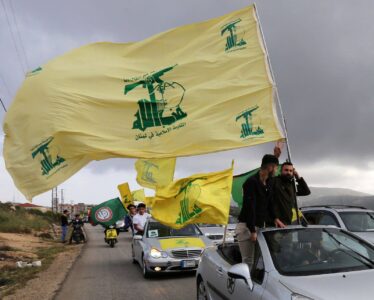
Hezbollah weighs survival options after Beirut blast
Beirut’s ammonium nitrate explosion earlier this month has further exposed Hezbollah to public anger, with some Lebanon observers predicting a gloomy road ahead for the U.S.-designated terror group in the aftermath of the devastating event.
The blast at the port from the detonation of 2,750 tons of ammonium nitrate on August 4 killed more than 200 people and injured thousands of others. The Hezbollah-backed government resigned amid mass demonstrations demanding radical reforms in the government.
Experts say Hezbollah is now facing a major challenge to protect its influence and shape the country’s future government because many protesters see it as a major obstacle to eradicating corruption in the country’s political system.
Rami Khouri, a senior public policy fellow and journalism professor at the American University of Beirut (AUB), told VOA, “Hezbollah don’t want to run the country, and they don’t want to see it collapse into chaos. They will have to use their capabilities to engage … both with the protesters and the sectarian elites. This is a big challenge that they never faced before.”
He added that many people in Lebanon have criticized Hezbollah publicly in the past but rarely pushed to be rid of its leader, Hassan Nasrallah.
However, after the blast, as protesters demanded justice and a transparent investigation, they set up makeshift gallows with cardboard effigies of Lebanese leaders, including Nasrallah.
Some local reports claim that the explosion at the port occurred from a weapons warehouse belonging to Hezbollah, which is backed by Iran. Nasrallah denied those accusations, calling the charge an “exceptional injustice.”
Lebanese President Michel Aoun says a government investigation into the explosion has not yet determined the cause and dismissed allegations of Hezbollah’s responsibility.
Source: VOA News





